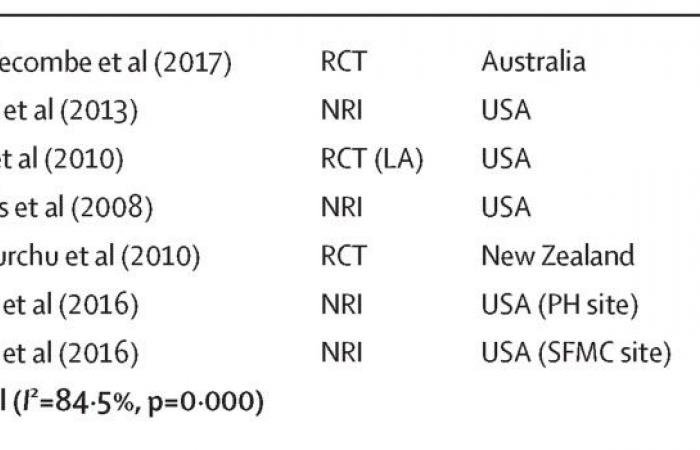
This slideshow requires JavaScript.
The answer that comes from the broadest analysis of the scientific literature is ambiguous. A review published on none other than The Lancet Planetary Healthtells us that if prolonged, Price reductions targeting fruit and vegetables (and potentially other healthier foods) could lead to significant changes in purchasing and consumption of these products, substantial enough to produce health benefits. But at the same time it is not clear whether by buying more fruit and vegetables we would seriously stop eating less healthy food. In fact, at the moment there is no convincing evidence of any negative effects on other purchases or consumption resulting from the reduction in the prices of fruit and vegetables or other foods considered “healthy”. In any case, the question that remains open is who should bear the cost of lowering the price of fruit and vegetables: certainly not the producers, many of whom, especially those who work organically, are struggling to stay afloat.
Over the decades, public health experts and international agencies have studied the effectiveness of public health strategies to reduce the consumption of sugar, alcohol, salt or tobacco, focusing on costs, i.e. taxing these products to disadvantage their consumption. ‘use.
What the research says
It emerged that a 20% price reduction led to an increase in fruit and vegetable purchases of 16.6%. Unfortunately, few studies had maintained the price reduction for more than 6 months, allowing a long-term evaluation. In any case, the data is also interesting because it is the most complete review on the subject, which includes 9 studies not considered in a large previous review.
The research considered 34 studies conducted in the last 10 years, from 1 January 2013 to 20 December 2021 (in the sense that after examining 7511 it only took 34 into serious consideration), stratifying the results based on the socioeconomic status of the sample.
At the same time, no convincing evidence has emerged of any negative effects on other purchases or consumption resulting from the reduction in prices of fruit and vegetables or other healthy foods. In fact, only five studies examined the effect of reducing the prices of healthy foods (or creating a price gap between healthy and unhealthy foods) on subsequent purchasing or consumption of unhealthy foods (three reported changes in purchases, two in consumption. Furthermore there is the problem of agreeing on the words: depending on the study, “unhealthy” food was defined in different ways, mainly as food high in sugar, fat and salt. The aggregate results have showed that for every 20% price reduction there was no statistically significant change in the purchase or consumption of unhealthy foods: the purchase or consumption of unhealthy foods decreased by only 2.40%.
Consumption data is still scarce
One limitation is that most studies have focused primarily on purchases rather than consumption as the key outcome measure affected by price reductions. However, although consumption is a more immediate outcome, purchases can be measured very accurately (based on electronic sales or purchase data collected for billing purposes by canteens and supermarkets), while nutrient consumption is notoriously difficult to measure.
In Italy
In Italy, as in the rest of the world, the poorest have a less healthy diet and do less physical activity, compared to those who are better off economically and especially those with a higher educational qualification. The ISS PASSI surveillance relating to the two-year period 2021-2022 highlights that 35.6 percent of those who have many economic difficulties are overweight compared to 31 percent of those who have none, and 42 percent of those who do not even have the middle school diploma, 31.5 percent of high school graduates and 26.9 percent of graduates. In addition to these, 17 percent of those with economic difficulties are obese compared to 8.7 percent of those who do not declare any. 22 percent of those without eighth grade compared to 9 percent of high school graduates and 6 percent of graduates. The sample concerns adults under 69 years of age.
Is more fruit and vegetables enough to make you feel better?
Here too, the literature is crystal clear on the fact that greater consumption of fruit and vegetables is associated with a reduced risk of both non-communicable diseases and premature mortality (we are talking about this in the survey on plant-based nutrition which is coming out in recent weeks on Infodata ). Elevated fasting glucose and high body mass index were two of three major risk factors that had a significant impact on disability-adjusted years of life lost and were predominantly associated with lifestyle factors such as diet.
It should also be noted, however, that a diet richer in fruit and vegetables does not necessarily mean a very healthy diet, i.e. low in processed products, such as dairy products, cured meats, sugary drinks and sweets.
What emerges from the literature is that following a balanced diet without animal products or with a very low intake of animal products brings greater benefits to the body than an omnivorous diet. In essence, it is now scientifically consolidated that “more vegetal is better”, but the details of this advantage must be explained well. At the beginning of January 2024, Netflix published a 4-episode documentary entitled You Are What You Eat, which recounts a study published in the well-known scientific journal JAMA, which examined 22 pairs of identical twins. One of the randomly chosen twins was provided with an exclusively vegan diet for 8 weeks while the other was provided with an omnivorous but well-balanced and healthy diet. In all couples, those who had eaten vegan showed better health after just two months.
Overall, however, the literature is clear on the fact that it is not necessary to become completely vegan to see one’s levels of bad cholesterol, inflammation, insulin improve, known risk factors for various pathologies, or to see levels of body fat and fat reduced. visceral.
To know more:
What makes plant-based foods “healthier”?
6 years of scientific reviews confirm that eating plant-based is better
In three years, eating disorders have more than doubled. Especially among the very young





